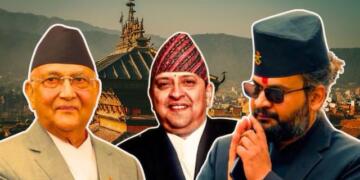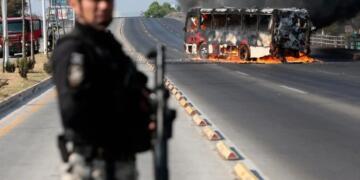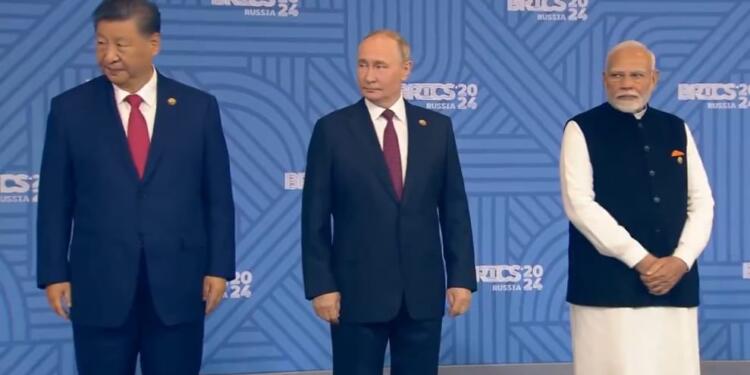BRICS has been the big bull in the geopolitics arena for a week. The 16th BRICS summit was organized between the 22nd of October to 24th October, 2024 in Kazan, Russia. Being hosted by Russia, the summit was undoubtedly an attempt to cut down the political and economic hegemony of the West and especially the US.
Amid the sanctions imposed on Russia for the invasion of Ukraine, Putin played host to 36 world leaders from nations including India and China that gave a clear message to Washington that it is anything but isolated. The sanctions imposed on Russia following its full-scale invasion of Ukraine in 2022 have alarmed many Global South nations, raising concerns that the West might use global financial mechanisms as tools of coercion against them.
Building an alternate power to US with India and China
Facing economic and diplomatic challenges due to the sanctions from the West, Russia is increasingly looking toward India and China for strategic partnerships.
For Russia, India remains a longstanding strategic partner, particularly in the fields of defense and energy. Despite India’s growing ties with the US, New Delhi continues to balance its relationship with Moscow. On the other hand, Russia and China have built a closer alliance over the past years.
India and China both participated in the 16th BRICS summit and it is being anticipated that Russia is looking forward to tie itself with India and China to build an alternate power to the US and cut down its hegemony.
The BRICS nations that include India and China have a similar vision of promoting multipolar global order that stands against the dominance of the US and this is very crucial for Russia in contemporary times which is facing economic sanctions imposed by the West.
Attempts of De- Dollarization
Vladimir Putin kicked off the expanded BRICS summit with a call for the creation of an alternative international payments system to counter the use of the US dollar as a political tool. However, the summit’s communiqué suggested that little headway had been made in developing such a system.
Putin said: “The dollar is being used as a weapon. We really see that this is so. I think that this is a big mistake by those who do this.”
It was predicted by global experts that the 16th summit of BRICS will have the main agenda of De-Dollarization and on 24th of October, the last day of the summit, topics such as de-dollarization, new trade policies and the usage of local currencies was put in front of the table.
De-Dollarization translates to the reduction of the dependency on the US dollars in International Trade. Russia, which is particularly under sanctions from the West, has been an advocate for de-dollarization, urging BRICS nations to explore alternatives such as using local currencies in bilateral trade agreements. China already initiated efforts in this direction, while India has shown interest in diversifying its trade mechanisms to reduce reliance on the dollar.
The BRICS nations have agreed to promote the use of local currencies in trade and financial transactions as a strategy to reduce vulnerabilities and mitigate the impact of external economic shocks on emerging economies.
The summit declaration highlighted the importance of local currencies in financial transactions between BRICS countries and their partners and called for strengthening correspondent banking networks.
This focus aligns with the BRICS Cross-Border Payments Initiative (BCBPI), aimed at simplifying payments and minimizing trade barriers. BRICS countries collectively represent nearly 40% of the global population and over a quarter of the world’s economy.
US art of intruding
From time to time the US for its individual gain has tried to intrude into internal matters of different countries. The US is a friend to none, this notion is widespread and acceptable.
We have seen how things turned upside down for our neighboring countries with the US playing a major role. The unrest in Bangladesh was pushed by the US. Not only in India’s neighbouring countries but also in India, it is anticipated that the US is keeping an eye to disturb the entropy of the state.
























